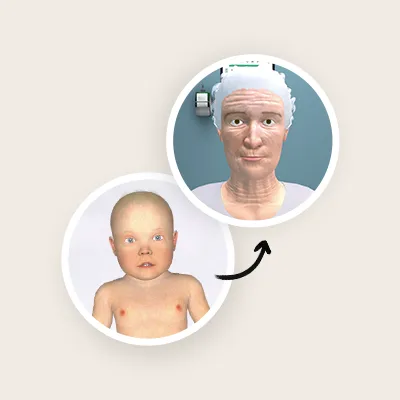Remediation in Clinical Practice for Nursing Students
Clinical practice is a critical component of nursing education, providing undergraduate students with the opportunity to develop the professional attitudes, knowledge, and skills required for the delivery of safe and competent care. However, some students struggle to consolidate their learning in clinical settings, putting them at risk of failing their courses or entire programs.
Effective remediation strategies tailored to clinical practice are essential to support these students, yet these approaches are often challenging to implement, as remediation tends to focus on theoretical components rather than practical clinical skills.
Challenges in Clinical Remediation
Remediation in clinical practice presents unique challenges. Traditional methods often emphasize improving theoretical knowledge through additional lectures, tutoring, and exam practice. While these strategies are beneficial, they may not address the specific difficulties students face in a clinical setting, such as:
- Applying theoretical knowledge to patient care
- Developing hands-on skills
- Managing the complexities and unpredictability of real patient scenarios
The Role of Remediation in Nursing Education
The number of nursing schools employing remediation strategies to improve student performance on both faculty-created and standardized examinations, including the NCLEX®, has increased significantly. Literature on remediation strategies in nursing programs highlights several key findings:
1- Individualized Learning Plans: Tailoring remediation to the individual needs of students can significantly enhance learning outcomes. This may involve assessing students’ specific weaknesses and creating personalized improvement plans.
2- Simulation-Based Learning: High-fidelity simulations offer a safe environment for students to practice and hone their skills without the risk of harming patients. These simulations can replicate a wide range of clinical scenarios, providing valuable experiential learning.
3- Regular Assessment and Feedback: Continuous assessment and constructive feedback are crucial for monitoring student progress and identifying areas that require further improvement..
Introducing Body Interact: A Virtual Patient Simulator
One innovative tool that is making a significant impact in clinical remediation is Body Interact. This Virtual Patient Simulator offers an interactive platform where students can engage with virtual patients in a variety of clinical scenarios. Key features include:
- Realistic Case Scenarios: Students can practice diagnosing and treating patients with a wide range of medical conditions, helping them develop critical thinking and decision-making skills.
- Immediate Feedback: The simulator provides instant feedback on students’ performance, highlighting areas of strength and areas needing improvement.
- Safe Learning Environment: Virtual simulations eliminate the risk of patient harm, allowing students to learn from their mistakes and gain confidence.
- Accessibility: Being a digital tool, Body Interact can be accessed anytime and anywhere, making it a flexible option for both on-campus and remote learning.
Remediation in clinical practice is essential for supporting nursing students who struggle to apply their theoretical knowledge in real-world settings.
Nursing programs can enhance their students’ clinical competencies by utilizing individualized learning plans, simulation-based learning, mentorship, and regular feedback. Tools like Body Interact offer an innovative and effective solution for clinical remediation, helping students develop the skills necessary for safe and competent patient care.

As a virtual platform, it is accessible from anywhere. It provides flexible training options that can be tailored to the needs of different teams and institutions.
Curious to learn more?
By Ana Santa – MSN, APRN
Editorial Manager









